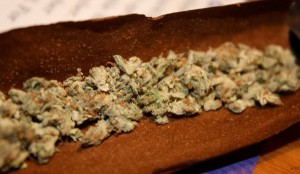
The Oscar-winning actor Morgan Freeman has called for the legalization of cannabis “across the board” and spoken of his own positive experiences using the drug for pain relief.
Freeman, 77, was badly injured in a 2008 car accident which shattered bones in his left arm, shoulder and elbow. He told the Daily Beast that marijuana was the only substance which helped.
“They used to say, ‘You smoke that stuff, boy, you get hooked!’” said Freeman. “My first wife got me into it many years ago. How do I take it? However it comes! I’ll eat it, drink it, smoke it, snort it! This movement is really a long time coming, and it’s getting legs – longer legs. Now, the thrust is understanding that alcohol has no real medicinal use. Maybe if you have one drink it’ll quiet you down, but two or three and you’re fucked.”
Added Freeman: “Marijuana has many useful uses. I have fibromyalgia pain in this arm, and the only thing that offers any relief is marijuana. They’re talking about kids who have grand mal seizures, and they’ve discovered that marijuana eases that down to where these children can have a life. That right there, to me, says, ‘Legalize it across the board!’”
Freeman, who won the best supporting actor Oscar in 2005 for Clint Eastwood’s Million Dollar Baby, also pointed out the cultural benefits of marijuana. He cited the shift in atmosphere between the original, largely peaceful Woodstock festival and its 30-year anniversary reprisal 16 years ago, which witnessed riots and arrests.
“And what negative effects does it have?” said Freeman. “Look at Woodstock 1969. They said, ‘We’re not going to bother them or say anything about smoking marijuana,’ and not one problem or fight. Then look at what happened in 99.”
Freeman is currently promoting his new film 5 Flights Up, a Manhattan-set relationship comedy in which he stars opposite Diane Keaton. Cannabis use is currently a hot subject in the US, with four states having legalized the drug, and a further 12 featuring a combination of legalization for medical use and decriminalization of possession.
